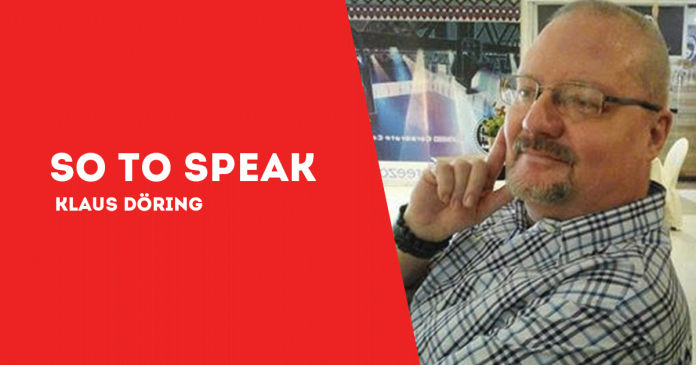
BY KLAUS DÖRING
I AM NOT a doctor. I am just a normal person with a different education and past experiences. I am an expat in the Philippines. I experienced the following things here…
Quality of life (QOL) is a highly subjective measure of happiness that is an essential component of many financial decisions. Factors that play a role in the quality of life vary according to personal preferences, but they often include financial security, job satisfaction, family life, health, and safety.
Four domains common to QOL in health have been defined as: physical health, mental health, social health, and functional health.
Intellectualization is a transition to reason, where the person avoids uncomfortable emotions by focusing on facts and logic. The situation is treated as an interesting problem that engages the person on a rational basis, whilst the emotional aspects are completely ignored as being irrelevant.
We all know that positive thoughts and emotions help you feel better, but they also do some other pretty cool things. They help you:
* improve your memory and attention, take in more information and hold several ideas in your mind at once
* understand how different thoughts relate to each other; handle tough situations more easily.
Positive thoughts and emotions help open you up to new possibilities. You’re better able to learn and build on your skills. That leads to doing better on tasks and tests.
Do you know where I learned this? In the Philippines. My family taught me all these things.
Building habits that encourage you to think and feel more positive can help you be more satisfied and have fewer unwanted feelings. This is especially important if you’re already dealing with a lot of negative emotions like fear, sadness, anger, frustration, or stress. Everyone has negative thoughts and feelings sometimes, but try to look on the bright side as much as you can.
Try these tips…
Notice and name any positive emotions you feel during the day. Track them in a list to be more aware of positive feelings you experience and situations or activities that cause them. For example, you might feel proud when you answer a question right, joyful when your dog or cat does something funny, or loved when a parent shows up at your game.
At the end of each day, try to find at least three good things that happened to you. This trains you to notice positive things and encourages you to do more stuff that causes positive emotions.
Pick a positive emotion and make it stronger. Let’s say you choose confidence. What helps you feel confident? How can you get more of that feeling?
You might give yourself a “Yes, I can!” pep talk before a test. Or maybe you stand up straighter and try walking through the halls in a confident way, feeling strong.
Think of positive emotions as muscles you should exercise by the way you look at things and what you do.
Be grateful. Make an effort to practice gratitude every day. This means pausing to notice and appreciate the things you often take for granted, like having a place to live, food, clean water, friends, family, even computer access. It’s taking a moment to reflect on how fortunate you are when something good happens — whether it’s a small thing or big thing.
Gather reminders of good experiences. Consider making a positivity box or folder filled with things like photos of good times, cards from special people, and favorite song lyrics. If you have trouble thinking or feeling positive some days, the box can lead you back to a happier emotional place.
Positive thoughts and emotions are powerful tools. So find ways to make time for them in your everyday life. Try to create room in your day for joy, fun, friendship, relaxation, kindness, and gratitude.
***
Email:doringklaus@gmail.com or follow me on Facebook or Linkedin or visit www.germanexpatinthephilippines.blogspot.com or www.klausdoringsclassicmusic.blogspot.com/PN



